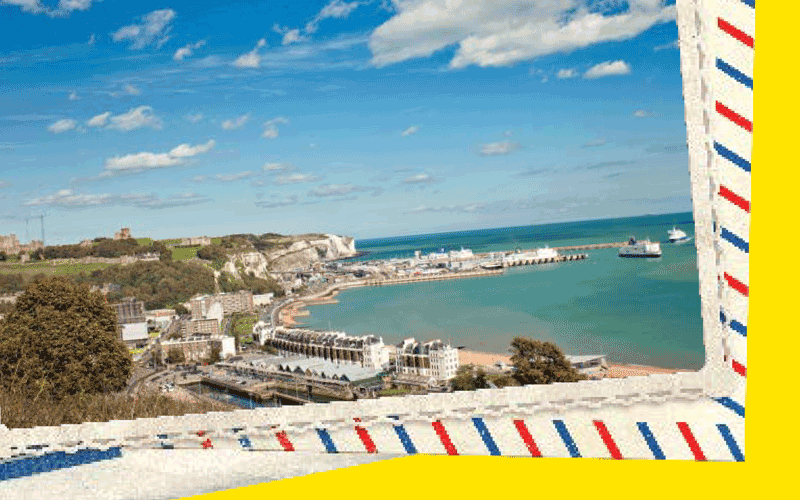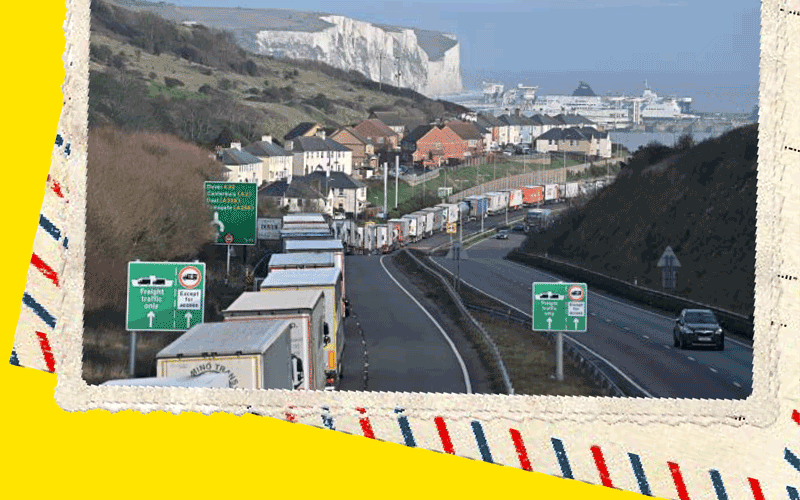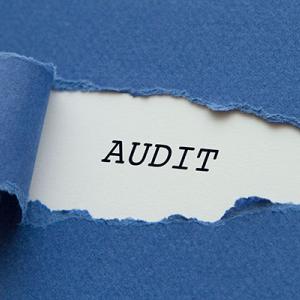
A rising political career was sunk by a sentence at the height of the torturous Brexit negotiations that misplaced a vital community.
Then-Brexit secretary Dominic Raab admitted in 2018 that he “hadn’t quite understood” the importance of the Dover-Calais trade route. The misunderstandings have continued as the UK’s closest point to Europe is currently defined by the row over small boat crossings.
Before that, the public image was focused on charity channel swimmers, the white cliffs of Dover, wartime endeavours and a castle. Its history goes back further than Roman times and includes the award of a royal charter in 1606.
Local artist Joanna Jones describes a place “populated with the remains of complex structures for holding people in or keeping people out”.
There’s a long tradition of achievements being overshadowed by bigger events. Harriet Quimby made history in 1912 by becoming the first woman to fly solo across the Channel from Dover. But the announcement was lost amid news of the Titanic sinking.
Today, away from the small boat landing points and Border Agency battles, the 117,000 population is making its own way. A significant number include coastal retirees, many from poorer parts of London. But others have decided to charter their own course.
They’ve decided to use people power to change their community and ignore the furore as well as funding cuts.
Kevin Mills, Labour leader of Dover District Council and trustee of a community centre, is among them.
He tells PF: “Dover has its issues, no doubt. But there’s a danger of negative connotations overshadowing reality.”
Big money
That reality is of big ideas, backed by big money, which are already under way. Dover Beacon is part of a £26m redevelopment to build an education campus providing training opportunities in creative and digital industries, plus a business centre for start-ups and small- to medium-sized enterprises.
And when preservation work supported by the council is complete, tourists will be heading to the Roman Painted House, which dates back to about AD 200.
Meanwhile, the Grade I listed Maison Dieu, which dates back 800 years, is undergoing a £10.5m restoration, thanks to a £4.27m grant from The National Lottery Heritage Fund. “It could be one of the most important historic buildings in Europe,” Mills says.
But the reimagining of Dover is an uphill struggle – decades of using cheap housing for homeless people has had an impact on the town, and the government hasn’t stopped use of migrant labour by ferry companies.
Heart of the storm
Crucially, the community is part of the turnaround. One centre is Dover RNLI lifeboat station, crewed by volunteers.
Danny Wilkins, coxswain from Dover RNLI, says: “Our crew are drawn from every background, and, having moved into our new station, we look forward to helping to safeguard lives in the English Channel for many years to come.”
Artists are also establishing their own communities. Among their achievements is the Dover Arts Development festival, which has its office in the home of one of the organisers and has won slender support of £88,000 from the Arts Council.
Last year’s festival, You Can Reach the World from Dover, included film screenings, a fashion show, public murals, art events and musical performances.
Its mission is to “strengthen communities and widen perspectives through creative thinking and actions”. Plans are well under way for more events.
“The organisation’s dedication to promoting art in Dover and far beyond is unparalleled. I’m eagerly anticipating the journey ahead and being able to further contribute to its vision,” says director Richard Bundy.
For people with business start-up ideas, a range of organisations are offering grants worth thousands of pounds. Among them is Kent Invicta Chamber of Commerce, which provides low-interest loans of up to £25,000.
Helping the homeless is the Dover Outreach Centre, an organisation that was started by two people and funded solely by private donations. It’s now run by 15 people, with support from a range of organisations, including churches.
Masterplan
Even the Port of Dover is getting in on the act, starting with a 2050 strategic masterplan to help understand the opportunities and challenges it faces – plus the potential investments it will need to make over the long term.
Among its ideas are improving the links between its two docks to support tourism, waterfront redevelopment, work to reduce congestion and solutions that can reduce carbon emissions. But it has also established a community fund and is recruiting for a stakeholder group for young people.
HR director Emma Williams says: “This inspiring new project aims to create a powerful new community of young people to help shape a bright and innovative future for the port. We strongly believe that this age group of 18- to 24-year-olds can empower each other and our wider port networks to share their unique personalities, ideas and skills. Together, this will make a huge difference in the outcome of tomorrow and beyond.”
But where is Whitehall in all of this, beyond grant applications? The all-party parliamentary group on coastal communities highlights how successive governments have failed to find a use for coastal communities beyond tourism and a now much-reduced fishing industry.
There’s a question as to whether there is enough policy research on coastal areas – or financial supporters willing to support it.

Sally-Ann Hart, chair of the APPG and Conservative MP for Hastings and Rye, says: “These communities often have more in common with each other than with their inland neighbours, and they require targeted policies to help ensure that equality of opportunity is provided the length and breadth of our United Kingdom.”
There are multiple think-tanks operating in the UK that cover global cities and urban areas, but not a single designated policy organisation dedicated to finding solutions that will help places like Dover.
The most recent work was by think-tank Onward, published in September last year.
It warns: “Neighbourhoods on the coast are 42% more likely to be in the worst decile for income deprivation than inland neighbourhoods.”
Uncertainty
There is uncertainty about what more can be done, especially in supporting the small businesses needed to keep the economy afloat.
The South East Business Boost programme, supported by Kent County Council, had offered growth grants to SMEs of up to £10,000. It’s now closed.
Lockdown also had a significant impact on retailers.
The Dover Big Local project and community interest company, which was entrusted with £1m of Lottery funding to spend on central Dover, finished in 2022.
Levelling-up funding was a critical lifeline – and that faces an uncertain future after the general election.
Without community action, Dover’s delivery advocates warn that outcomes would be seriously negative – not least of which would be global organised crime gangs getting a bigger foothold.
Last month alone, the National Crime Agency revealed it had arrested four alleged members of an organised crime group that specialises in smuggling criminal cash out of the UK and into Albania.
The suspects were arrested in co-ordinated raids, which began with a 48-year-old Albanian national being arrested at Dover with approximately £200,000 in cash. Three others – including a 17-year-old boy – were arrested in London, where around £150,000 in cash was also recovered.
The NCA says the Dover operation is part of work to tackle large-scale offending: “Money launderers enable other serious and organised criminals – such as drugs and firearms dealers – to commit their horrendous offences which so badly damage our society.”
Other crime threats include people smuggling and firearms. One intercepted deadly haul saw nine guns, including two AK-47 machine guns with ammunition, discovered within a shipment of soft furnishings.
But Dover’s society isn’t waiting to be saved by Westminster or policy experts.
Mills tells PF: “It’s really positive. We’ve got a growing population of artists. There’s regeneration, and we’re reviving the high street. There’s lots of work and more needed. But it can be done.”
He adds: “There are some fantastic people in the district who want to see improvement. And they deserve it.”



















